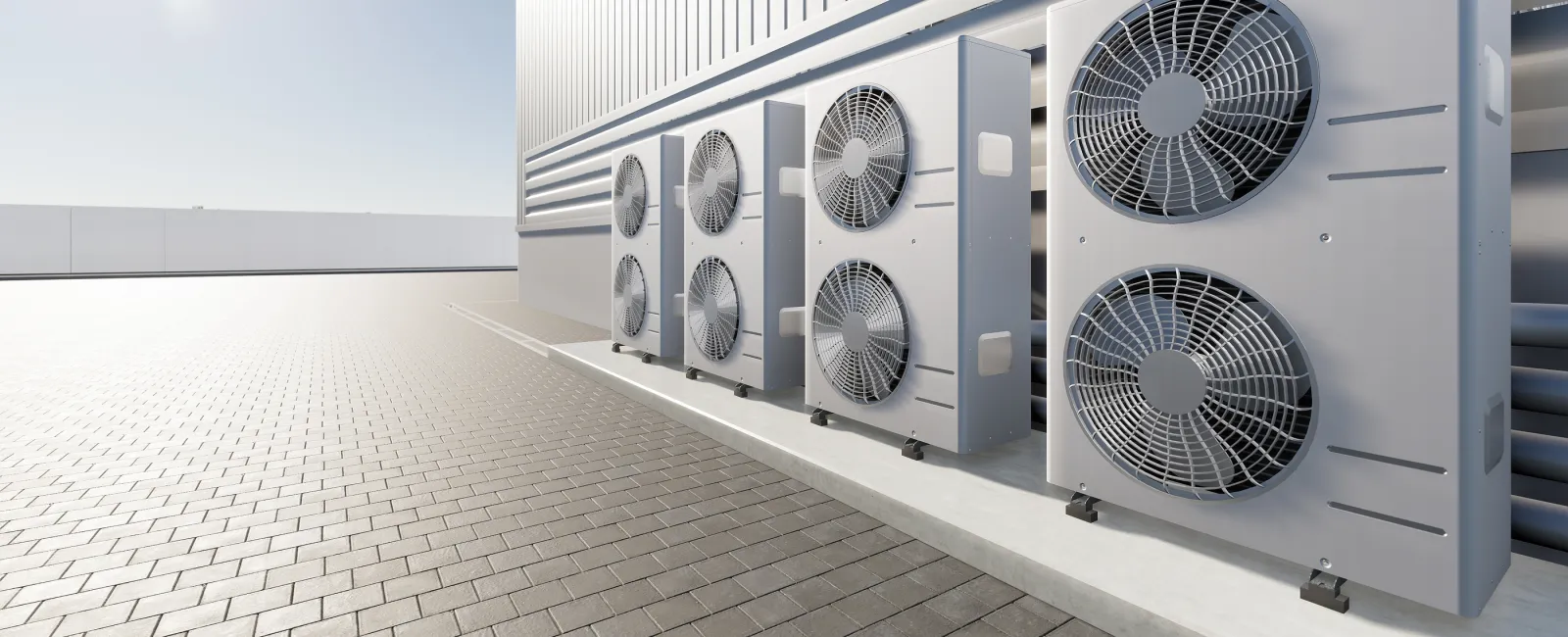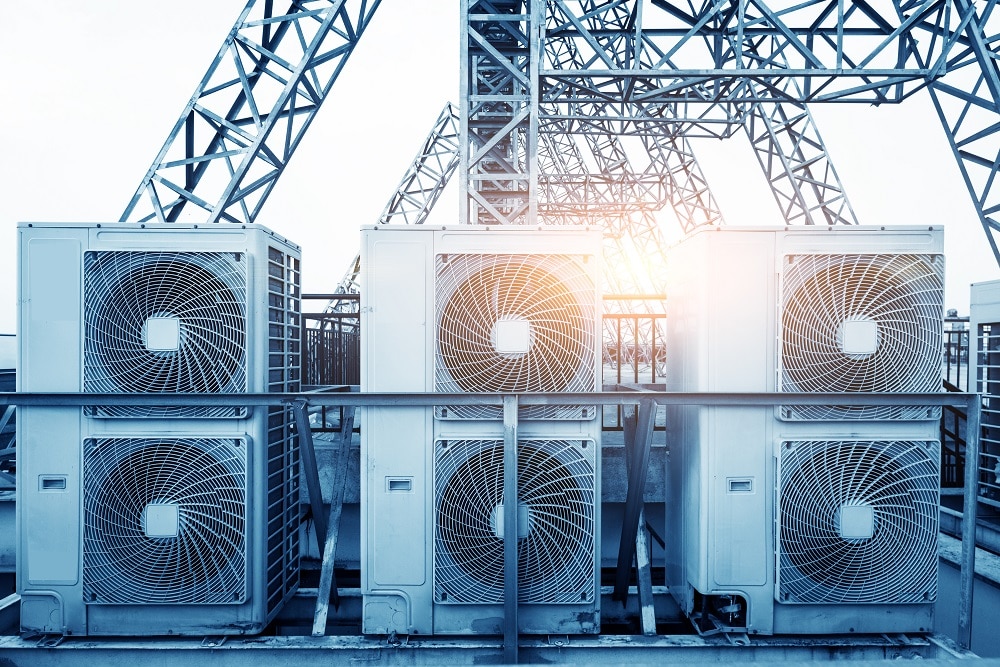Explore how HVAC experts deliver personalized comfort services
Exploring the Crucial Elements of a Reliable HVAC System
An efficient heating and cooling system is improved a number of important elements that work in harmony. Each part, from the thermostat to the ductwork, plays an essential role in maintaining convenience and power effectiveness. Comprehending these elements is crucial for optimizing efficiency and boosting indoor air quality. As one examines these components, the detailed partnerships between them reveal understandings right into enhancing total system efficiency. What particular elements contribute most to this performance?
The Duty of the Thermostat in A/c Effectiveness
Although usually ignored, the thermostat plays an essential function in the efficiency of HVAC systems. HVAC experts. This small tool serves as the key nerve center, managing temperature setups and guaranteeing excellent comfort within a room. By accurately picking up the ambient temperature, the thermostat interacts with the air, ventilation, and home heating conditioning units to preserve the wanted environment
A reliable thermostat reduces power consumption by triggering the HVAC system only when required, consequently protecting against excessive heating or cooling. Modern programmable and wise thermostats boost this efficiency even more by enabling individuals to establish timetables and from another location readjust settings, adapting to daily routines.
Furthermore, the placement of the thermostat is necessary; inappropriate area can bring about inaccurate temperature readings, resulting in inefficient operation. In general, a well-functioning thermostat not just improves comfort but also adds considerably to energy savings and the long life of the cooling and heating system.
Recognizing the Relevance of Air Filters
Air filters offer a necessary function in heating and cooling systems by guaranteeing that the air flowing within a room stays healthy and balanced and clean. These filters catch dust, allergens, and various other toxins, avoiding them from being recirculated throughout the environment. By recording these bits, air filters contribute to boosted interior air quality, which can greatly profit residents' health, specifically those with allergies or respiratory system conditions.
In addition, maintaining tidy air filters boosts the efficiency of a/c systems. Blocked filters can restrict air flow, triggering the system to function tougher to keep wanted temperatures, leading to increased energy intake and greater utility expenses. Regularly replacing or cleaning up filters is a vital upkeep action that can lengthen the life expectancy of cooling and heating devices. Ultimately, comprehending the importance of air filters enables property owners and building supervisors to take aggressive steps to assure a well-functioning, efficient cooling and heating system that promotes a secure and comfortable indoor setting.

The Functionality of the Heater and Heatpump
Heating systems and heat pumps are important components of cooling and heating systems, responsible for giving warmth during cooler months. Furnaces operate by home heating air through burning or electrical resistance, then distributing it throughout the home via air ducts. They generally supply fast home heating and can be fueled by all-natural gas, electrical energy, or oil, depending on the system type.
Alternatively, heatpump move heat as opposed to produce it. They draw out warm from the outdoors air or ground, also in low temperature levels, and transfer it inside your home. HVAC experts. This double capability permits heat pumps to also offer air conditioning in warmer months, making them flexible choices for year-round environment control
Both systems call for correct upkeep to assure performance and long life. While heaters succeed in severe cold, heat pumps can be beneficial in moderate climates. Understanding their distinct functionalities aids property owners in choosing the most suitable option for their heating needs.
Exploring the A/c System
The a/c system is an essential part of heating and cooling systems, available in various types to suit various demands. Recognizing the performance scores of these systems is crucial for making educated selections regarding energy consumption and cost. This area will explore the diverse kinds of air conditioning system and make clear exactly how efficiency ratings influence performance.
Kinds Of Air Conditioners
While numerous elements affect the selection of a/c systems, understanding the various kinds offered is essential for homeowners and structure managers alike. Central air conditioning conditioners are developed to cool whole homes or buildings, using a network of ducts for air flow. Home window devices provide an even more local remedy, perfect for small areas or single areas. Portable ac unit provide flexibility, permitting customers to relocate the system as needed. Ductless mini-split systems are one more alternative, incorporating the effectiveness of main systems with the comfort of zoning, as they call for no ductwork. Finally, geothermal systems harness the earth's temperature for energy-efficient cooling. Each type comes with unique benefits, making educated selections essential for efficient climate control.

Efficiency Ratings Clarified
Recognizing efficiency scores is necessary for picking the appropriate a/c device, as these metrics supply insight right into the system's performance and energy usage. The most usual ranking for air conditioning unit is the Seasonal Energy Performance Ratio (SEER), which additional info gauges the cooling output during a typical cooling season split by the overall electrical energy input. A higher SEER indicates much better performance. Additionally, the Power Efficiency Proportion (EER) is used for determining effectiveness under particular conditions. Another vital metric is the Energy Celebrity important source qualification, which signifies that an unit meets rigorous energy efficiency guidelines. By assessing these scores, customers can make educated choices that not only enhance comfort however additionally lower power prices and environmental influence.
The Relevance of Ductwork and Airflow
Effective ductwork style and air flow management play essential roles in the overall efficiency and performance of cooling and heating systems. Correct ductwork warranties that conditioned air is distributed uniformly throughout a space, minimizing temperature level variations and enhancing comfort. Well-designed air ducts decrease resistance to air flow, minimizing the work on HVAC equipment and eventually decreasing energy intake.
Air movement management entails strategically positioning vents and registers to boost the circulation of air. This prevents common problems such as chilly or hot spots, which can occur when airflow is blocked or improperly well balanced. In addition, the appropriate air duct materials and insulation can even more boost effectiveness by decreasing warmth loss or gain throughout air transportation.
A reliable ductwork system not just adds to power financial savings but can also prolong the life-span of HVAC equipment by reducing unneeded stress (HVAC experts). Comprehending the importance of ductwork and air movement is essential for achieving peak Heating and cooling system efficiency.
Normal Upkeep Practices to Enhance Efficiency
Regular upkeep practices are crucial for guaranteeing peak performance of heating and cooling systems. These practices include routine inspections, cleansing, and needed fixings to maintain the system running successfully. Routinely transforming air filters is essential, as clogged filters can obstruct air flow and reduce effectiveness. On top of that, professionals must examine and clean evaporator and condenser coils to stop getting too hot and energy wastefulness.
Yearly specialist evaluations are additionally advised, as skilled professionals can identify possible issues prior to they intensify. websites Oiling relocating components lessens wear and tear, adding to a longer life-span for the system. In addition, making sure that the thermostat functions properly aids in keeping ideal temperature control.

Regularly Asked Questions
How Frequently Should I Change My Thermostat?
Thermostats need to usually be changed every 5 to 10 years, depending upon usage and innovation advancements. Routine checks are a good idea to ensure peak performance, specifically if experiencing irregular temperature control or raised power prices.
What Dimension Air Filter Is Finest for My Cooling And Heating System?
The very best size air filter for a cooling and heating system varies by system layout. Typically, it's vital to consult the proprietor's handbook or inspect the existing filter dimensions to ensure peak performance and air top quality.
Can I Set Up a Warm Pump Myself?
Setting up a heatpump separately is possible for competent individuals, however it requires knowledge of electric systems and local codes. Employing a professional is advised to guarantee appropriate setup and optimal system efficiency.
Exactly how Do I Know if My Ductwork Is Effective?
To establish ductwork efficiency, one ought to check for leakages, step airflow at vents, examine insulation high quality, and assess temperature differences between supply and return ducts. Expert evaluations can offer comprehensive understandings into total performance.
What Are Signs My Heating And Cooling Demands Immediate Maintenance?
Indications that a HVAC system needs instant upkeep consist of unusual noises, inconsistent temperatures, raised energy expenses, undesirable odors, and regular biking. Addressing these problems promptly can stop more damage and guarantee height system efficiency.
Air filters serve an essential function in Cooling and heating systems by guaranteeing that the air distributing within a room continues to be healthy and balanced and tidy. In addition, maintaining clean air filters improves the effectiveness of Cooling and heating systems. Ductless mini-split systems are another option, integrating the effectiveness of main systems with the ease of zoning, as they call for no ductwork. Understanding efficiency ratings is vital for choosing the appropriate air conditioning system, as these metrics provide understanding right into the system's efficiency and power intake. The ideal dimension air filter for a Cooling and heating system differs by device layout.